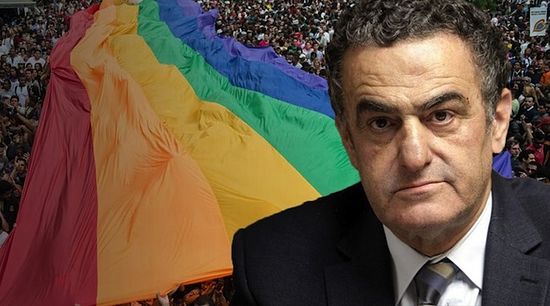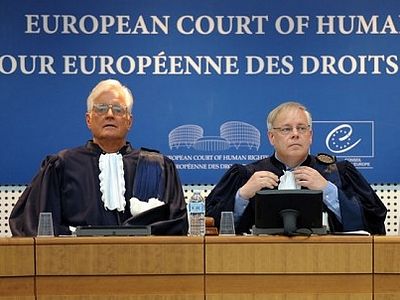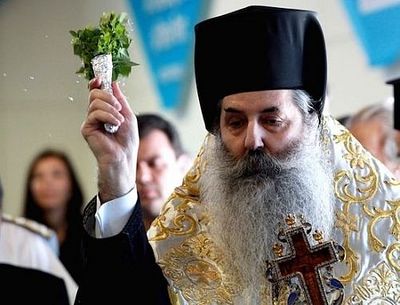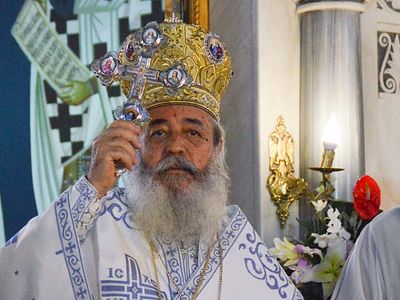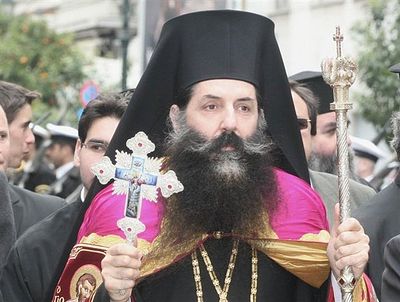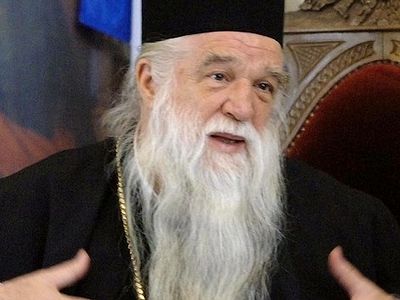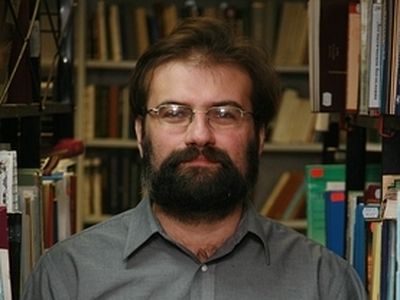December 8, 2014
Greece’s justice minister has been accused of homophobia after unequivocally denouncing gay marriage.
In an outburst that startled human rights defenders and activists in the country’s increasingly visible LGBT community, the minister, Haralambos Athanasiou, said he was virulently opposed to same-sex marriage as it posed dangers to a society that “respected traditions”.
“I won’t discuss it, I can’t conceive of it,” the conservative politician told Mega TV. “Besides, the convention of human rights forbids it. When it speaks about marriage it speaks [of marriage] between a man and woman. We are a country that respects traditions, respects human nature, and it’s not possible at least with this government and this ministry, to permit marriage.”
Complying with EU demands to legalise domestic partnerships for homosexual couples was also problematic, he said, because it was not without potentially adverse consequences for society.
“It’s a little dangerous to simply speak of civil unions. The matter is not easy. The problem is what are the consequences going to be … are we going to go as far as talking about adoption [by same-sex couples] next?” he asked.
Athens was fined by the European court of human rights last year for failing to extend protective rights, including domestic partnerships, to gays and lesbians, a move the tribunal described as discriminating to same-sex couples.
Following the judgment, the prime minister Antonis Samaras’s conservative-dominated coalition signalled that it would redress the wrong but got cold feet when rightwingers and clerics reacted in fury. Greece and Lithuania stand alone in refusing to grant such rights.
When put to him that the vast majority of EU member states had implemented such laws, the Greek justice minister retorted: “That’s their issue.”
He said: “Our country has structures. We have to look at it from the religious point of view, the political point of view, the social point of view. The ministry of justice will not, under the pressure of anyone, examine such an issue without calmness and composure.”
This year the bishop of Thessaloniki, Anthimos, an influential figure in the Greek Orthodox church, called homosexuality “a perversion of human existence”.
In April a prominent MP with the neo-fascist Golden Dawn party, Ilias Panagiotaros, denounced same-sex relationships as a “sickness”, telling an Australian interviewer: “Until 1997 the international association of doctors and I don’t know what considered homosexuality a sickness, illness, which it is.”
With the rhetoric at such levels, gay activists are far from being inured to the need to be battle-hardened in the fight for equal rights. But campaigners expressed shock at Athanasiou’s statements at a time when attacks on gay people have increased alarmingly in recent months.
Andrea Gilbert, a prominent LGBT activist, said: “Greece wants to present itself to Europe and the rest of the world as a modern democratic country that respects the rights of all its citizens. These are really very shocking statements when the man making them is the minister of justice, the person who is meant to protect citizens, not a crackpot member of Golden Dawn.
“No declaration of human rights forbids anything and the Greek constitution for sure does not define marriage as being between a man and a woman. With their emphasis on ‘consequences’ these remarks reek of fear-mongering of the worst kind.”
